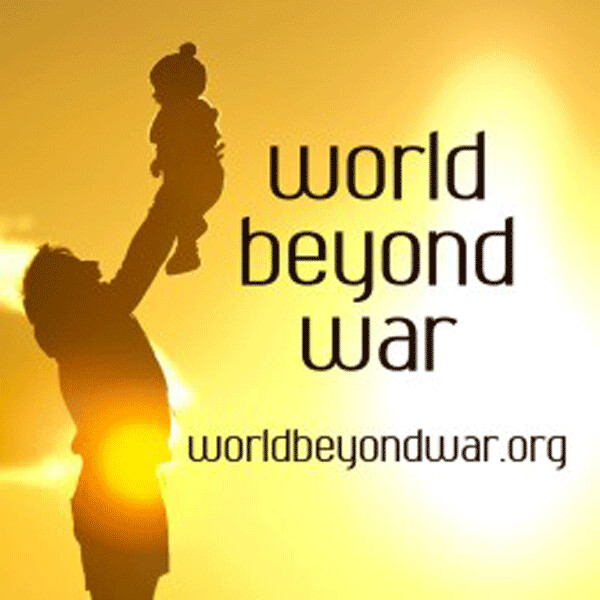News & Articles
Browse all content by date.

“Thinking that war is inevitable makes it so; it’s a self-fulfilling prophecy.”
“Thinking that ending war is possible opens the door to constructive work on an actual peace system.”
“There is more peace in the world than war. It is not inevitable. We have a record of doing things differently. We have changed in the past and we can do more in the future.”
Most people think world peace is a Utopian pipe dream. Humans are the killer ape. War is as old as humans and it isn’t about to go away. We live in a dangerous world and must rely on a strong military to keep us safe. But World Beyond War, an international peace advocacy organization, doesn’t accept these pessimistic beliefs. They say we can end war. The quotes above are from their publication, “A Global Security System: An Alternative to War.” This short booklet lays out their practical, comprehensive program to build alternatives to war. It is a blueprint for an alternative security system – one based on peaceful international cooperation, institutions, and laws rather than military power.
This article summarizes some of the reasoning and proposals from “A Global Security System: An Alternative to War.” You can read more at the World Beyond War (WBW) website. You can access print and online copies of the booklet at worldbeyondwar.org/alternative. This is a must read for everyone concerned about the direction our nation and the world are headed.
The current worldwide system of national security based on military power has failed to keep people safe from violence. WBW proposes three strategies for humanity to end war: 1) demilitarizing security, 2) managing conflicts without violence, 3) creating a culture of peace. These are the steps to dismantling the war machine and replacing it with a peace system that will provide a more assured common security.
Demilitarizing Security
The alternative security system proposes replacing militarized national security with “common security.” No nation is really secure until all nations, large and small, are secure from threats and invasions. War, and threats of war, are replaced by non-violent alternatives to military intervention.
One of the alternatives is a non-provocative defense structure. Our current “defense” structure is offensive with weapons systems and overseas military bases to “project power” and dominate foreign battlefields (and protect commercial interests). A truly defensive posture would close bases, abolish nuclear weapons, outlaw weaponized drones, limit weapons sales, and end interventions in other countries. A defensive military posture would not threaten other nations and would reduce world tension and conflict.
Another strategy for demilitarizing national security is to re-think our response to terrorism. Responding with military force, invasions. and world wide drone attacks has not worked. We are killing more innocent people than “bad guys” and breeding more, not fewer, terrorists. A response based on legal prosecutions of terrorist acts, prevention of terrorism, and addressing the root causes of terrorism would produce better results. Other strategies include taking the profit out of war, restructure the war based economy, and expanding disarmament treaties.
Managing Conflict
The alternative security system is not about abolishing conflicts. WBW is realistic and understands that human relations will always involve conflict. But we can learn to resolve conflicts without violence. Humanity can create a non-militarized alternative to war. In fact, we have been creating this system for over one hundred years and many of the basic international institutions and laws are already in place. The United Nations, The International Court of Justice, The International Criminal Court, the Geneva Conventions, and numerous treaties are examples. We need to strengthen and adequately fund these institutions and alliances.
Modern war is not the result of individual aggression. War is a highly organized, learned behavior that requires advanced planning, preparation, weapons development, material stockpiling, and the mobilization of a country. A non-violent, non-provocative security system requires similar organization and mobilization to succeed. To succeed in creating a more peaceful world a robust structure of social, legal and political institutions must be created that values peace over war. To build this alternative security system we must change our thinking about what makes us safe.
Creating a Culture of Peace
To abolish war we must reject militarism and the cultural supports that maintain the war based national security state. WBW asserts that war is cultural, not genetic. While individual and small group aggression is older, organized war developed about 10,000 years ago with the rise of the centralized state, slavery, and patriarchy. We learned to make war. But even in periods of widespread war, like the 20th century, there was more peace across the world than war. This shows that war is cultural.
Changing the culture of war requires new thinking. We have to tell ourselves new stories about who we are and what we value. As WBW says
“The old story ...is that the world is a dangerous place, that war has always been with us, is inevitable, in our genes, and good for the economy, that preparing for war ensures peace, that it’s impossible to end war, that the global economy is a dog-eat-dog competition and if you don’t win you lose, that resources are scarce and if you want to live well you must grab them, often by force, and that nature is simply a mine of raw materials. This story is a fatalistic self-fulfilling deterministic outlook that claims to be realism but is in fact defeatist pessimism.”
Cooperation and compassion are as much a part of the human condition as aggression and violence. We have the capacity to learn and to choose a better way. We can choose non-violence. This is not pie-in-the-sky although it will nor be an easy process. Peace is possible if we choose to change the culture and allow it to happen.
| Tweet |


